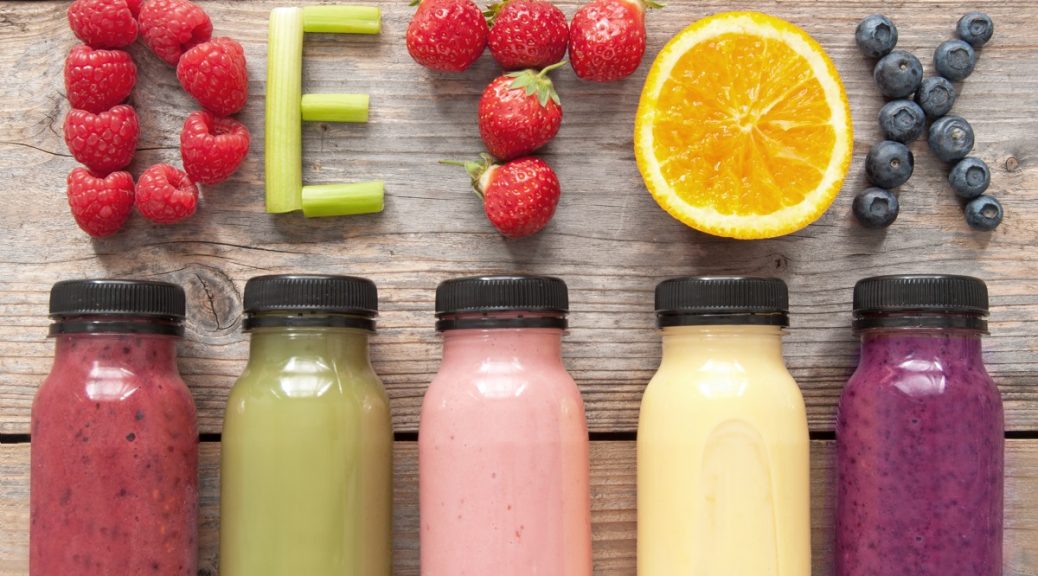
New Year Detox
Although the liver serves as the main detoxification organ in the body, there are some simple steps you can take to naturally detox and cleanse the body – and it’s an ideal way to kick start your health in the New Year.
“Detoxification is a natural bodily function that is occurring all the time. In today’s modern world we are constantly bombarded with environmental toxins and we also naturally produce our own toxins,” explains nutritional therapist Claire Barnes, technical advisor at ADM Protexin. “Toxins that are unable to be excreted from the body (which may occur when our detoxification systems aren’t working optimally or have become overwhelmed) get stored in fat cells. During weight-loss these toxins can once again enter the blood stream, so detoxification support is vital alongside any weight-loss programme.”
Rose Holmes, education and training manager, says there are signs to look out for which indicate when a detox is needed. “Common signs that detox is needed might include: fatigue, muscle aches, unexplained headaches, sinus congestion, brain fog, insomnia, sleep disturbances, memory loss, poor concentration, moodiness and sometimes skin rashes, acne, bad breath, body odour and cravings.”
Natural cleanse
“The first step to naturally detox and cleanse the body involves reducing your toxic load; avoiding pollution, chemicals, food additives, alcohol, smoking, etc,” explains nutritional therapist Claire Barnes, technical advisor at ADM Protexin. “Other tips include switching from non-organic to organic foods, filtering tap water and swapping to natural cosmetics, toiletries and cleaning products.
“The final stage is to increase nutrients and fibre predominantly from fruits and vegetables, increase water intake and potentially supplements that can support the body’s detoxification systems.”
Nutritionist Rachel Bartholomew, health writer for Nutri Advanced, says that detox is a simple two-step process. “It involves first giving your live a break from anything taxing to process, such as alcohol, caffeine, non-organic foods, whilst also supplying it with all the nutrients it needs to work at its best.”
So, what nutrients are needed to help support the body’s detox system? Barnes answers: “The function of detoxification in the body requires a vast array of different nutrients from the diet, such as antioxidants from fruits and vegetables, B vitamins from legumes, pulses, nuts and seeds, healthy fats such as olive oil and fibre to feed our gut microbes and improve bowel motility. Therefore, it is important to ensure we are obtaining adequate amounts of these nutrients from our diet to support detoxification pathways in the body.”
Claire recommends aiming to eat at least seven portions of vegetables and two fruits from a variety of different colours. “Fruits such as grapefruit, lemons and oranges contain limonene, an important phytochemical that supports liver detoxification. Cruciferous vegetables such as broccoli, cauliflower, brussels sprouts, kale and cabbage are particularly beneficial for liver detoxification. Allium vegetables which include onions, leeks and garlic are also important to support liver function.”
Green tea, turmeric, dandelion, watercress and rosemary have all shown to help detoxification pathways in the liver so would be useful to include in the diet during a detoxification cleanse.
As well as reducing toxin exposure, Holmes also suggests drinking herbal teas. “Opting for herbal teas instead of sugar-laden drinks may help. Swapping drinks like coffee, energy drinks, alcoholic drinks and soft drinks for herbal teas can also result in reduced consumption of milk, and elimination of any non-natural ingredients that might be found in these beverages. As well as not contributing to toxin-load, natural botanical teas may offer immune support (for example Cat’s claw tea and Pau d’arco tea), an energy boost (Yerba maté or Guaraná teas) or other benefits.”
“Alongside these steps, there are other lifestyle tips such as moderate exercise (brisk walking, running or cycling), deep tissue massage, getting seven to nine hours restorative sleep each night and getting outside as much as possible,” adds Barnes.
The benefits
Whilst a detox isn’t a magic bullet, it certainly may help your body to cope better with the daily onslaught on toxins it has to face.
In terms of specific benefits, Holmes says: “Daily support for detoxification can help the body to function more optimally. A well-thought out detox that includes daily support via chlorophyll-rich drink can increase energy and resilience. Other benefits may include improved capacity to fight off seasonal colds and flu, clearer thinking and clearer skin. Weight loss may be facilitated as wee since toxins store in fat tissue.”
“If you can limit your exposure to toxins, and at the same time support your liver’s capacity to deal with those that you can’t avoid, it’s likely that your health will benefit in some way,” comments Bartholomew. “Whilst many people vow to start a detox in January, after the excesses of the festive season, you really can do it any time. The best time to do something positive for your health is always now, whenever that may be (you just need to decide what you’ll do with all that extra energy!).”